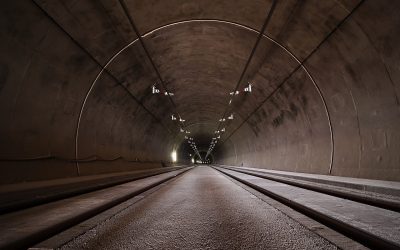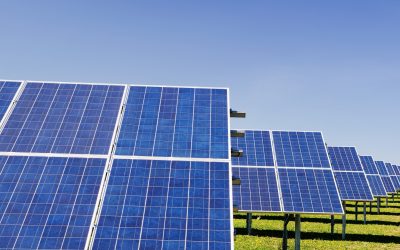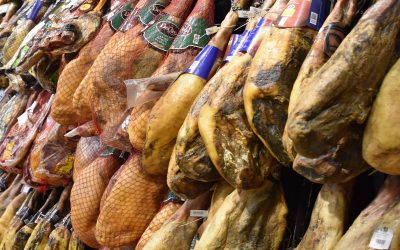CARTIF Projects
PAC-SAVE
Controlled Environment and Plant Health Pilot
Description
CARTIF’s PAC-SAVE project aims to develop a Controlled Environment and Plant Health Pilot to investigate the resilience of crops and forests to climate change. Through advanced technologies in agrigenomics, biofertilisers and plant health, it aims to improve agricultural productivity and reduce environmental impact. The facility will simulate future climate scenarios, optimise bioproducts and strengthen the sustainable management of natural resources in Castilla y León.
Objectives
- Simulation of future climate conditions: Develop a controlled environment to study the impact of climate change on crops and forests, analysing their resilience to adverse scenarios.
- Research in agrigenomics and plant health: Identify genes and defence mechanisms in plants to improve their resistance to pests, diseases and extreme climatic conditions.
- Development of sustainable bioproducts: Optimising the use of biofertilisers, biopesticides and biostimulants to improve agricultural productivity and reduce dependence on synthetic chemicals.
- Optimisation of agroforestry practices: Evaluate sustainable management strategies to improve biodiversity and soil quality in agroforestry ecosystems.
- Monitoring and analysis of environmental data: Implement advanced technologies, such as sensors and drones, to obtain accurate information on the state of crops and forest ecosystems in real time.
Expected Results
- Development of an advanced climate simulation system: Implementation of a controlled environment to study the impact of future climate scenarios on crops and forests, improving agricultural and forestry planning.
- Optimisation of sustainable bioproducts: Creation and validation of biofertilisers, biopesticides and biostimulants that have been shown to reduce dependence on synthetic agrochemicals and improve soil health.
- Advances in agrigenomics and plant health: Identification of resistance genes in key crops, contributing to the improvement of varieties adapted to extreme climatic conditions and the reduction of pests and diseases.
- Implementation of environmental monitoring technologies: Use of advanced sensors, drones and real-time data analysis systems to improve crop management and assess biodiversity in agroforestry ecosystems.
- Knowledge transfer and generation of regional impact: Integration of project results in sustainable management strategies in Castilla y León, collaborating with companies and administrations to strengthen agro-ecological resilience.
R&D Line
- Research on new systems and crop improvement: biological control, adventitious control, plant rotation and association, pest bio-resistance, yield improvement, RNAi and plant genetics strategies and urban agriculture solutions.
Grant to support investment for the improvement of the scientific and technological capacities of the Technology Centres of the Community of Castilla y León (2024)
File: 2024 CCTT 08
![]()
![]()
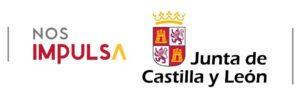
Total Budget: 138,745€
CARTIF Grant: 69,327.50€
Duration: 19/09/2024 – 31/05/2025
Co-financed with ERDF funds contributing to the Policy Objective “OP1: A more competitive and smarter Europe, promoting innovative and intelligent economic transformation and regional connectivity to information and communication technologies”.
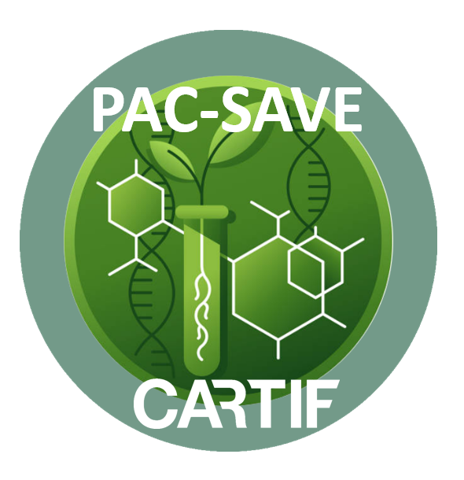
Responsible
Fernán Berride
Division of Agrifood and Processes
Networking
Other projects:
SITEER
Currently, inspections of road and rail tunnels are carried out manually. CARTIF and Geocisa have studied how to implement technologies that allow inspecting automatically tunnels to achieve its preventive maintenance, developing a system which is able to organize the collected data.
PAVIREX
The PAVIREX project, “New safer pavements in extreme temperature conditions”, was co-financed by the Ministry of Science and Innovation and FEDER Funds, through the INNPACTO 2011 call. The consortium of the project is formed by CARTIF, Grupo Campezo, Euroestudios , Proas (Cepsa), Eiffage, the University of Oviedo and the University of the Basque Country.
CONREPOL
The CONREPOL project will evaluate both chemical procedures based on the use of compounds that increase the surface polarity (silane coupling agents) of the waste and physical treatments with the same objective.
GEOMAF
The GEOMAF project provides railroad maintenance companies with a system that optimizes the maintenance of the railway superstructure and infrastructure.
RENERPATH
This project, which was developed between 2011 and 2013, established an energy rehabilitation methodology based on novel and non-intrusive techniques for the energy analysis applicable to public and private heritage buildings.
SHERIFF
The SHERIFF Project (Hybrid and Economic System of Flexible Integral Facade Rehabilitation) new tools for the energy rehabilitation of buildings.
INNOLIVO
INNOLIVO uses new technologies and processes for the development of innovative olivar products intended for new international markets of high added value
GREEN-CAR
The GREEN CAR ecodesign Project applies the ecodesign methodology to several components of the “electric vehicle” system: batteries, converter, charging points, conditioning systems and auxiliary systems from renewable sources
CAMPOFRÍO
The CAMPOFRÍO project studies and develops a process for reducing salt content in cured ham. Development of a salt content evaluation system in sliced cured ham with on-line NIR technology.
CIBIC
The CIBIC project arises with the objective of improving the services provided by the companies of conservation of infrastructures, based on the application of new technologies to carry out the concept of intelligent systems that will help to improve the quality and the innovation of these services.
REHABCAR
El proyecto REHABCAR (REHABilitación de CARreteras y autopistas) desarrolló nuevas herramientas para la transformación de las carreteras y autovías existentes en infraestructuras económicamente sostenibles y de alta calidad para prolongar su vida útil y adaptarlas a las nuevas necesidades del tráfico.
LIFE RESCATAME
RESCATAME represents a new system for the sustainable management of traffic through the use of models that predict pollution levels, which are supported by data collected by the network of air quality sensors, and that can help to execute a rapid action.
BIOREFINERÍA FT
The FT BIOREFINERY Project consists in developing a technology that allows obtaining 2nd generation liquid biofuels (synthetic diesel) and electrical energy, through the application of gasification and co-gasification processes, of different types of solid and / or liquid waste ( herbaceous biomass, lignocellulosic, glycerin, etc.)
BIALEMA
BIALEMA: RED for the production of Biofuels and its impact on food, energy and the environment. Conducted by Dr. Antonio Francisco Valdes Delgado (CUBAENERGIA).
DINAMO
The DINAMO project is responsible for the development and validation of nanocapsule and nanostructure production technologies of active molecules with functional properties for food use.
BIORECOS
The BIORECOS Project aims to design and build a demonstration plant of a modular nature that allows, through pyrolysis, the production of charcoal and / or active coal, as well as the generation of electrical energy.
ENHANCE HEALTH
The ENHANCE HEALTH project focuses on environmental and health concerns related to air pollution produced by industries and waste incinerators in urban areas.
